© 2026 ALLCITY Network Inc.
All rights reserved.

BOULDER – The faces haven’t changed.
Their beards are now longer, some of them gray, but most everyone still looks like the athlete they were the day they exhausted their athletic eligibility.
These are the people that built Colorado men’s basketball to its golden era, and they’re still helping their beloved program to glory. Or, trying to anyway.
Many of the players that set the foundation for Tad Boyle to take Colorado to new heights are playing on Team Colorado in The Basketball Tournament (TBT). Those players could be awarded $2 million if they win one more game than they did last year.
Two million dollars is cool.
But $2 million is nothing if you don’t have anyone with whom to share.
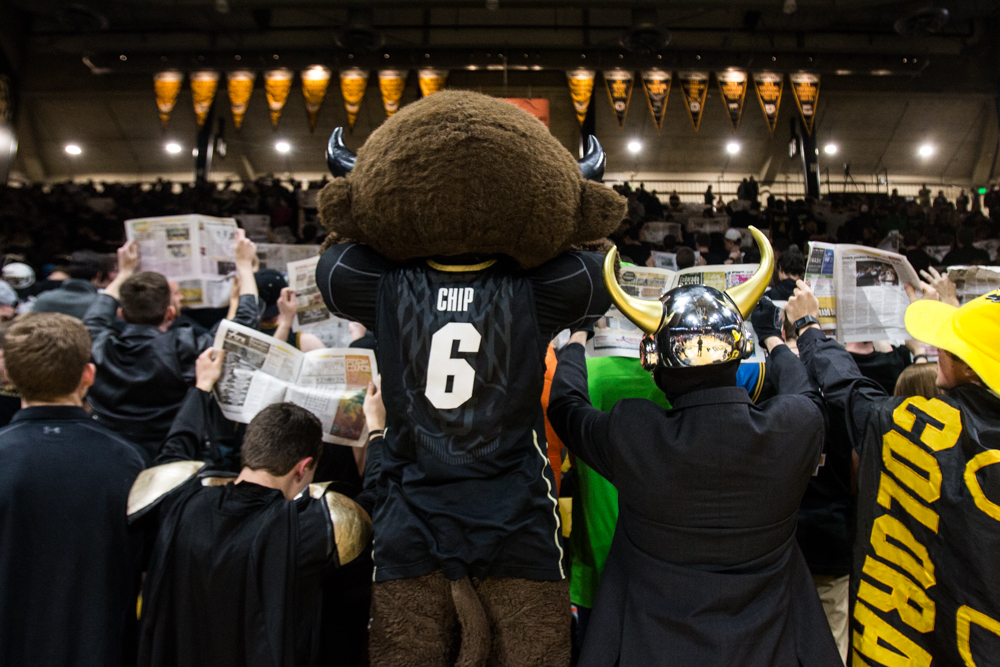
Despite their loyalty to the program, some former players seem a bit jealous of the current ones, because of amenities the program didn’t have just a few years ago. Some of the current players seem to have little idea how lucky they are or how the program they play for was built.
But they all seem to share the passion to get Colorado to, legitimately, the next level; A real-deal-Holyfield, Big Time Program.
“Brick by brick we’re building this thing,” Boulder native and general manager of Team Colorado Beau Gamble said. “When I decided to do this, we wanted to put together a competitive team that can win games, but the end goal was that this was an avenue for us to build the culture of Colorado Basketball and it made sense. Now that we’ve seen the success it just keeps building. We had double-digit media members here for an alumni team because of our success, and they’re talking about the TBT. That’s not the story; the story is all of these guys coming back. We got a program where all these guys who play professional basketball at some level are coming back to Boulder, and they’re working out with the current team, that’s building relationships. That lets a kid named Derrick White meet a guy named Marcus Hall last summer. That just let an 18-year-old freshman named Evan Battey meet a five-year NBA vet in Chris Copeland. How does that happen if they don’t come back?”
Gamble, along with Trent Beckley, has been the brains of Colorado’s TBT team.
The two were each walk-ons at CU, Beckley playing through a tumultuous stretch from 2006-2011 and Gamble from 2011-2014, when the program accelerated greatly.
“I have such respect for those guys and what they did last year,” said Boyle. “I just talked to our (current) players, and I want our players to embrace them. Beau and Trent and the former players that have organized this, I’m very grateful to them, because the whole idea is to tie the eras of Colorado Basketball together and this is a great step.”
The two weren’t rewarded at first, as Team Colorado was downed in the first round of 2015’s tournament. But the clearance and help they got from the program’s visionary leaders allowed them to have faith in the thing each tried so hard to build.
“When I came to Tad with this idea, he thought it was a great one and when he saw what it could be he encouraged it even more,” Gamble said. “He checks in on us, he’s overseas now, and he texted me yesterday to find out how camp went. He’s the head coach of CU, he’s the assistant coach of the U-19 USA Basketball team, but he’s checking in with me to see how camp’s going, making sure that we are taken care of. People take him for granted, but he’s a special coach, a special man, a special person to this program, to Boulder and the University.”
Gamble only ever wanted to play for Boyle. When he was at Fairview, coach Jeff Bzdelik sent several players to watch the guard play for what was one of the best teams in state. Gamble didn’t dig his style, headed to Santa Clara and later transferred into CU once Boyle got the gig.
Meanwhile, Beckley has a far different perspective, being the only player to suit up for all three of the past three coaches at CU.
But Beckley and Beau agree that Boyle is the only man they ever want to see coaching their Buffaloes.
“I was reading articles (such as) ‘Should Tad be the coach next year?'” Beckley said. “The work that we’ve done and the success that we’ve seen, going to the postseason every year while going through the transition of switching conferences, changing where you recruit. To be able to manage that and still bring in guys with character… we have the right guy here, just playing for one year with him, the second I left I knew he was the coach for the next 10 years. Now that we have coach Boyle, we have the right guy in place, he wants to be in Boulder, wants to raise his family here, he has skin in the game this is his community. We hadn’t have a coach at CU that was really part of the community like Tad is.”
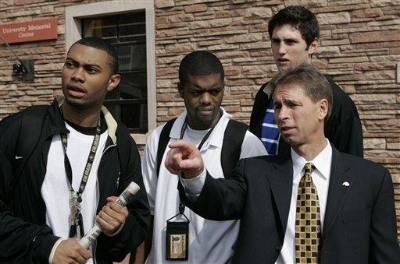
Beckley is this alumni team’s connection to the Ricardo Patton era, while Beau brings in the Boyle bunch.
Gamble was only watching from the bleachers when Beckley was playing, so it’s Trent that has the keen memory of life pre-Boyle.
“I always tell these guys that when I first started here, we had to dress and get ready for games in the girls away locker room because ours was outdated from 20 years ago and they were doing construction,” he said. “We had no practice facilities, we’d practice at Balch Fieldhouse, we imported a court and played there then we would walk to Dal Ward to do weights, we got trained by the football training staff. To see it evolve it’s hard for us because they (the current players) don’t know that story they just see all of this (the rather-new practice facility) and they don’t know the work that went into it. I point to Cory Higgins, he came here, and his freshman year we might have only won eight games, and by the time he left, we had Alec Burks, Andre Roberson, Levi Knutson… But it hasn’t been easy, and when we’re around these guys (the current team), we remind them and let them know to not take this stuff for granted. There was a lot of blood, sweet and tears from a lot of people and that builds that sense of family and pride. We try to help them understand that they’re a part of something bigger than themselves.”
The family thing is important, but to understand that bond one must understand that, less than a decade ago, NBA talents were practicing in a crumbling fieldhouse built in 1937. The fieldhouse hosted games, too, before Coors Events Center was built in 1979. It still stands today, but parts of it are condemned.
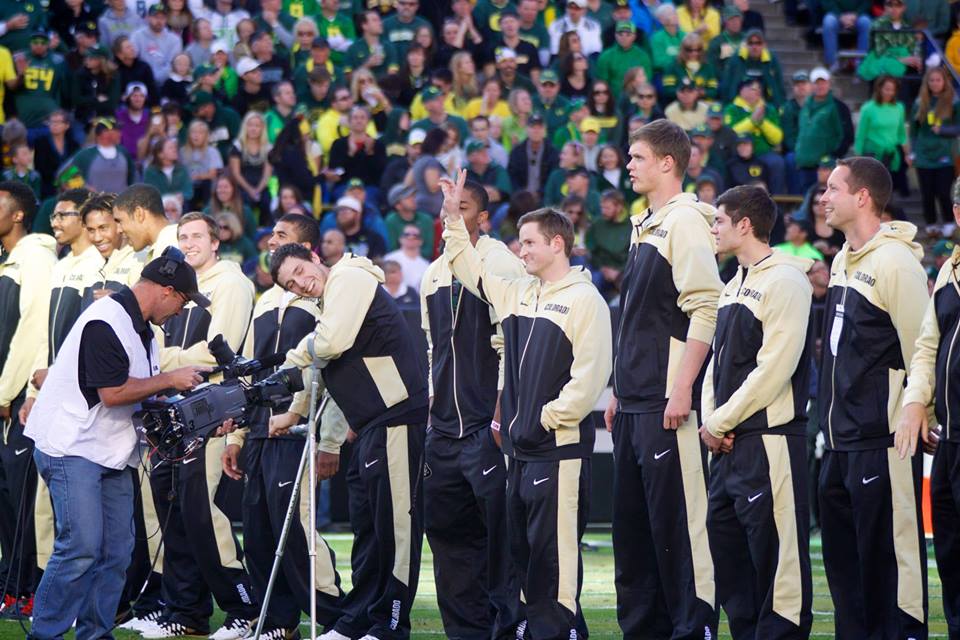
“I’m extremely happy for these kids,” NBA veteran and four-year letter winner Chris Copeland said. “They have these facilitates now, and I think that puts the pressure on them to be in the gym. We had to fight with rec center patrons and football players to use weight rooms, and it was a lot more complicated to just get in the gym. These guys have it all now, and it’s awesome, just being around them yesterday, it’s the same as us, they love basketball. It’s a beautiful thing that the program has given them these opportunities.”
The love of the program has always been there for its participants. Through poor attendance, being an afterthought to the athletic department and coaching changes, the players have always stayed loyal. More important, the players have always loved each other. At times, it seemed they were all they really had.
That mentality has not shifted despite amenities, national spotlight and a pipeline of NBA prospects.
“It says a lot about the kind of guys the older guys are,” Gamble said. “Chris Copeland didn’t play for Tad Boyle, he doesn’t have to be here, he doesn’t owe the program anything, but he’s here because the guys he played with he has so much respect for because he loves CU. He may not have the chance to come back during the season or all the time but when he’s here he’s making the most of his time here, he’s trying to make the current guys better, and that’s what’s so impressive.”
That’s the trickle down.
“It’s special these guys love being here,” Beckley said. “That scrimmage where they played the current team, you could see it, they’re all smiling. They’re having the most fun they’ve ever had, and they’re having it here. Us older guys who played professionally love seeing the compete level of these kids and toughness (of the current team), we want them to be chippy and want that fire, and we want to help grow that in any way we can, and now we’re bringing value to the program.”
It comes full circle so fast; Look at 2016 graduate Josh Scott, next to all-world player Copeland, who is guarding CU freshman Evan Battey.
“You see the talent in this gym,” Beckley said. “Where we can get better is to continue to develop character, developing these guys as people. You saw, we weren’t the best team in TBT, but we were the best team. The current CU guys want to beat us; they want to see how they compete against the highest level with our guys playing in the pros. It’s fun because they all think they’re ready to play at that level but the older guys have so many tricks up their sleeve, and the kids can learn from the miles and miles they have, and that’s a family, we’re all gonna make each other better.”
Last year, now NBA first-rounder Derrick White spent some time with Marcus Hall, a member of the TBT 2016 All-Tournament Team.
This camp, Hall—a pro since 2008, the Bulgarian League’s MVP in 2009 and a Buff from 2003 to 2008, who scored 1,178 points in Boulder—is still around, bringing the attitude he had way back in 2015, “I’m probably the biggest Buff fan there is, man.”
Hall took CU freshman three-star signee McKinley Wright under his wing this time.
According to a source, in one of the scrimmages against the TBTers, Wright ‘had a straight up Shannon Sharpe-style put back dunk over Chris Copeland. Brought the house down.’
Afterward, Hall pulled him aside and said, “Good finish boy, that’s big time.”
Oh yeah, and Sharpe is on the TBT team too.
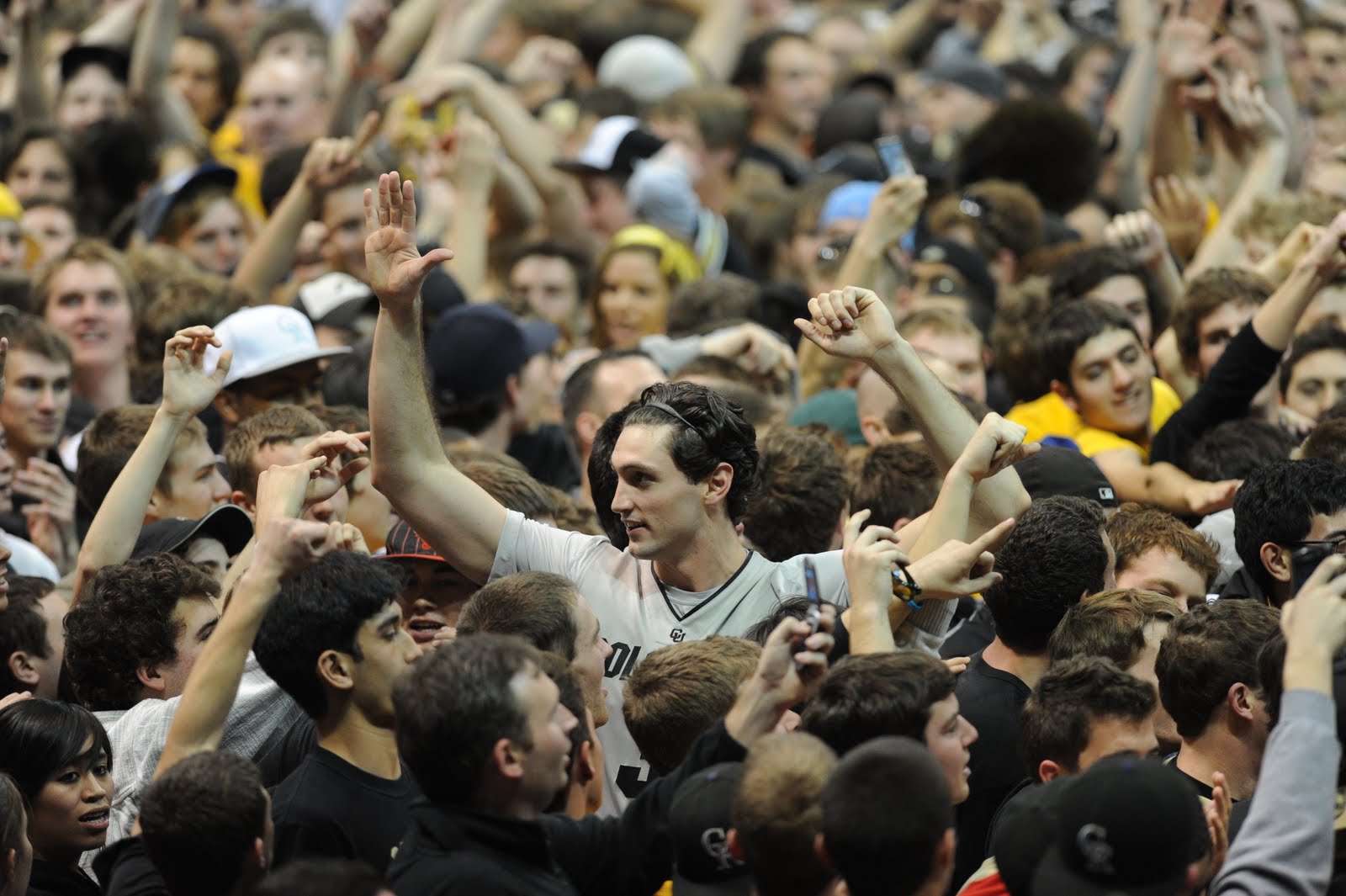
“We didn’t have a training camp or practices,” Beckley recalled 2015. “It was the first time we had all seen each other in four years, and it was in the middle of LA, so it was more of celebration. We had a lot of talent, but we weren’t prepared, and we got beat. We had no chemistry, and we were flat. The next year… we wanted to do it the right way. We started raising funds for training camp, flew everyone back, it felt like a startup. Some guys were sleeping on couches, others sharing beds, we were just making it happen, and I think that made us tighter. We were roughing it together, and that brought out the chemistry that we didn’t have the first year. We went out to LA, and we were prepared, and we just started winning.”
They’d keep winning until they were outscored 41-26 in the second half of the championship game in 2016, where they would lose by just three.
The million bucks mattered, so too does the two million this year. But it’s not as important as the rest.
Many college friends go on a boys trip every year. This is something like that, but for different reasons.
“It’s interesting because we’ve done a lot of interviews and a lot of people have made it about the money,” Beckley said. “The reason we were so good (last year) is because the money didn’t matter. We were having fun together, we had each others’ backs, we were communicating. There was not another team in the entire tournament that had what we had. When we saw that come together we saw what we could build as a platform, U of A, Cal isn’t doing this, but they have a leg up in recruiting. It’s not just the coach, the alums have to help build the program. Will (Whelan) writes about this all the time; it takes leaders to make this program.”
Beckley and Gamble are the unexpected leaders of a program needed to connect the generations.
“TBT is a platform for this to exist but I want this to exist without TBT,” Gamble said. “This weekend of basketball is bigger than TBT. This is about young guys, old guys, anyone who ever put on a jersey for CU, this is what it’s about, it’s about the family. We brought it in everyone together after pick up, ‘family on three’ and we’ve got guys that are 18-years-old and 36-years-old in there. That gave me goosebumps. The bond you build here should not just exist with the guys you went to school with; this thing lasts forever.”
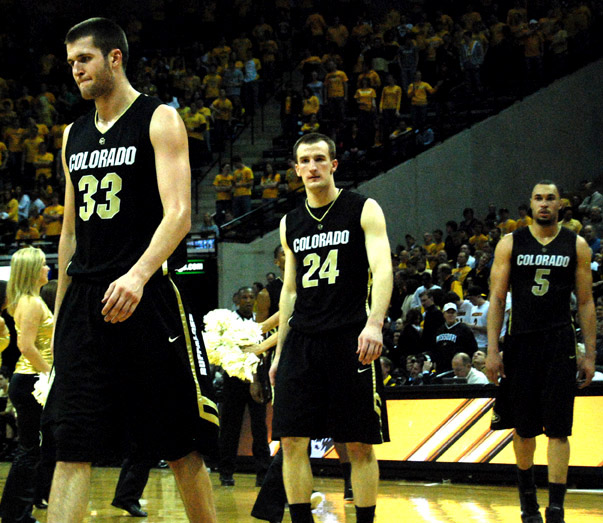
The aspirations of the two still hinge on having CU win its first major championship, but they’ve grown past even that. They’ve mentioned scholarship donations, golf tournaments and fundraisers for former teammates that might need the help.
“This is a recruiting tool,” Beckley said. “All the recruits and their parents when they come to a Pac-12 school they think they’re going to the NBA. It’s hard for us to highlight Cory Higgins winning the EuroLeague like we should have a banner of him holding the championship trophy up, that’s a big deal, and he’s making more money than half the guys in the NBA. We need to help players see that… When you get a parent of a recruit visiting, and they see a picture of all the alumni together, and they ask what is that. A coach can say they built that, I had nothing to do with that, and that’s special. That can give us a leg up, and kids not from Boulder that comes here are more likely to stay longer and to care, and that’s what it’s all about.”
It’s a family by every sense of the definition.
“It’s nostalgic; we are walking around Boulder looking at each other, remembering stories and things we’ve been through,” Copeland said. “If it’s me and [James] ‘Mookie’ [Wright] fighting at six in the morning or playing basketball one on one, Michel (Morandais) and I playing video games till six in the morning. It’s good to be back.”
Perhaps the best explanation of this comes from Beckley.
“I don’t look it at like our team (TBT) versus their team (current CU), we’re all the team. Mine and Beau’s next challenge is finding the next person to bridge the gap from the Josh Scott era all the way to these freshman…. We’re all helping each other out. It goes back to Dwight (Thorne) as the head coach. When I picked him a lot of players were kind of upset and wanted a real coach, and I said ‘Dwight is a real coach.’ Just like we’re all here to get better as players, we need to help Dwight get better as a coach because that’s his career. What happened last year changed Dwight’s career. He coached a team to the finals, and he’ll always have that when he’s interviewing for the next job.”
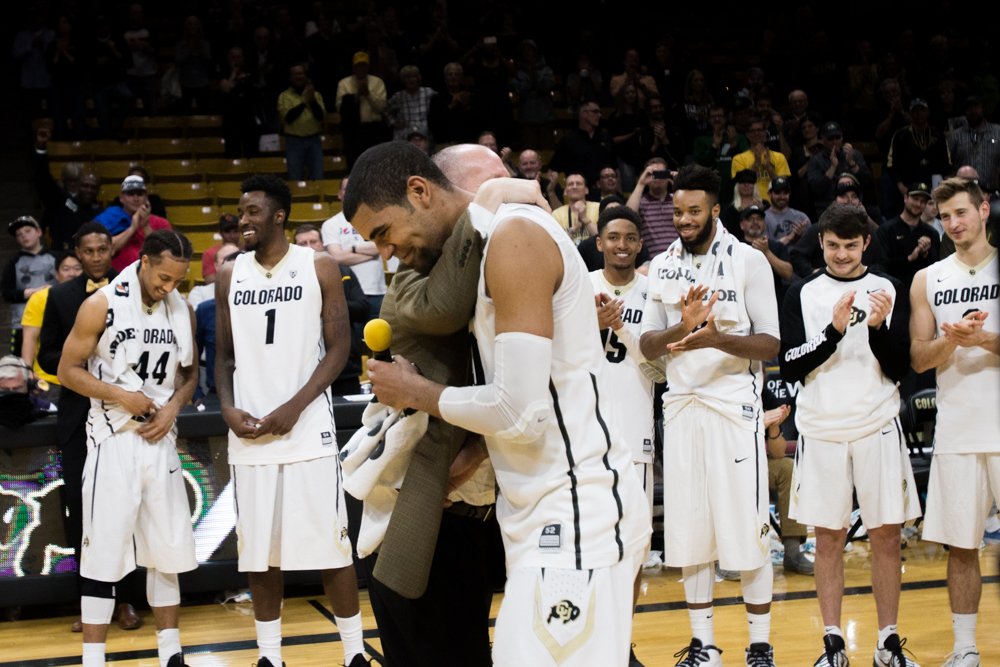
Thorne is now coaching one of Boyle’s brightest pupils in Scott, arguably a top-five player in program history.
Scott joins the squad after his first pro year and in the midst of an NBA summer league stint with Portland.
Just as Scott was the leader for Boyle on the court, he might be the one Beckley believes can connect the next era.
“A lot of these guys come from different eras, and it’s exciting to be able to play with guys from different eras,” Scott said. “I’d like to Spencer (Dinwiddie), Ski (Askia Booker) and a few more of these guys out here some day too. It’s good to see these guys who I don’t know much about.”
“It feels like a video game, you know where they have Floyd Mayweather fighting Rocky Balboa or something like that, it’s like one of those things you can’t put together,” Copeland said. “Michel could never play with Richard Roby, Luke could never play with Calvin Willams, and I couldn’t play with Josh Scott, it makes you ask ‘what would that team look like?’ It feels like a video game; it’s really dope. I’m more excited about playing with these guys than anything.”
That’s probably the coolest part for the fans of CU, which all these players are, seeing some of the greats from different generations play together for the first time. And it’s not like they’ve been spending their days at the YMCA either.
“We got got guys everywhere, but it still needs to grow,” Scott said. “We need to get to the next level, and that starts with getting past the first round of the NCAA Tournament. And then it takes us to get to higher levels of play; we have eight or so guys playing in the NBA or the EuroLeague.”
“We have the foundation now but how can we build upon the house to get to an Elite Eight or a Final Four? I think about this all the time,” Beckley said starry-eyed. “If we made a run like that, so much pressure would come off of all of and we deserve it, but it’s hard to do.”
The goal is to take the program to the highest level, and everyone you talk to from former players to current staff members thinks it’s doable.
Dominique Coleman tries to sound stern, but can’t help but breaking up:
“It’s better (than the highest level,)” said Dominique Coleman who played from 2005-2007. “This is a little different; this is family. Kentucky and Duke guys are there one year, and they’re done, we’re four years or two, and we come back all the time, they’re there for six months. This is different.”
Everyone is agreement on two things: 1, this TBT “thing,” that nobody can really define, is helping and, two, Tad Boyle is a genius.
“We were up on top of Champions Center, having a welcome C Club event,” Beckley said. “Looking around you have Mindy Sclaro who is our Academic Coordinator and has been there for 11 years and has seen all of us grow up and get our degrees, all the donors, the players who are of age are up there drinking, and we’re going ‘this is a program finally,’ and coach Boyle isn’t even there. He’s out doing stuff representing lthe program overseas for USA Basketball while back home he has players who didn’t even play for him helping to build our program.”
Boyle, everyone agrees, has done more to re-establish the program than anyone.
“It’s amazing to me how many people take Tad Boyle for granted,” Gamble said. “What an unbelievable job he has done building up the program and no, it didn’t necessarily start with him. And yes it had everything to do with the walks of life that came before him and all the people that are involved with the program whether it’s scholarship donors or outside boosters… there are so many different people that have paved the way to get CU basketball to where it is, and I think we overlook certain things and we take it for granted. We are in a golden era of CU hoops, and we haven’t peaked yet.”
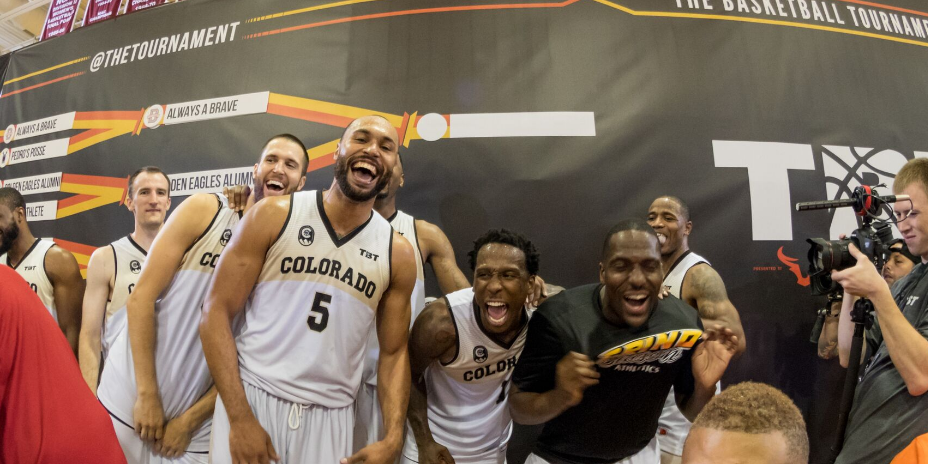
Comments
Share your thoughts
Join the conversation




